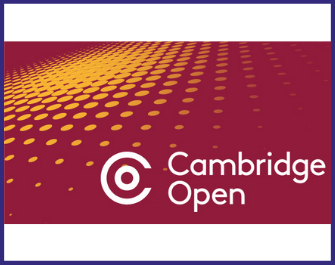
News
Open Access Agreement with Cambridge University Press for Claremont Authors to Publish Free of Charge
The Claremont Colleges Library Scholarly Communication Services helps scholars navigate shifting publishing, intellectual property, and information policy landscapes in ways that promote research dissemination, accessibility, and impact.
We help Claremont Colleges scholars navigate the changing landscape of scholarly publishing, open access, and research output metrics. Our goal is to help Claremont Colleges students, faculty, and staff maximize the reach and impact of their work and understand their rights to use and share their work on scholarly communication platforms.
“Scholarly Communication” is the system through which research and other scholarly writings are created, evaluated for quality, disseminated to the scholarly community, and preserved for future use. The system includes both formal means of communication, such as publication in peer-reviewed journals, and informal channels, such as electronic listservs. Scholarly communication is frequently defined or depicted as a lifecycle documenting the steps involved in the creation, publication, dissemination and discovery of a piece of scholarly research.
“Open Publishing” is an umbrella term for the scholarship known as open access, open data, open educational resources, open research, and open science. The Claremont Colleges Library has a longstanding commitment to open scholarship aimed at increasing sustainable systems of open infrastructure and open access for barrier-free use and re-use of scholarly works.
The Library’s Scholarly Communication Vision
We advocate for a scholarly communications landscape that is open, inclusive, and sustainable. The Library endeavors to extend the impact of the scholarship produced and consumed by members of The Claremont Colleges. By providing infrastructure, education, expertise, and services that support the processes involved in reviewing, collecting, organizing, disseminating, and preserving scholarly knowledge.
The Library’s Scholarly Communication Core values:
The Claremont Colleges Library can assist faculty, students, and staff with:
Open Access Publishing:
ORCiD unique researcher identifiers, a platform for sharing comprehensive, validated researcher data about their education, funding, works and publications, peer review activities, professional associations, invited positions and distinctions, and more.
Copyright, Fair Use, and Creative Commons Resources
Research impact, how to maximize your impact, and use metrics responsibly. (Coming soon!)
Publishing an Open Access Journal with the Library (Coming soon!)
Open Educational Resources are teaching, learning, and research resources that reside in the public domain or have been released under an intellectual property license that permits their free use and repurposing by others.
For additional assistance contact scholarship@claremont.edu.